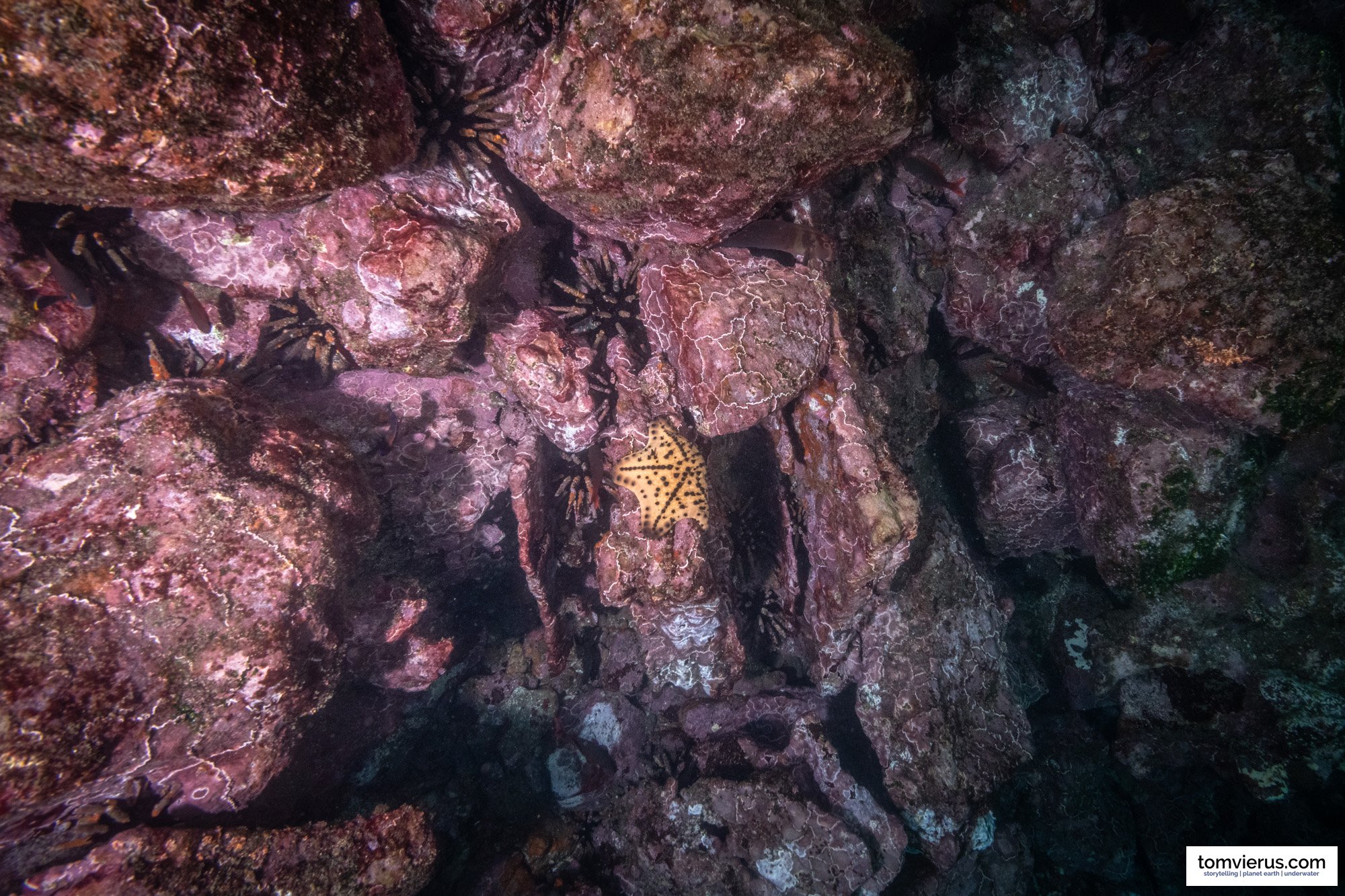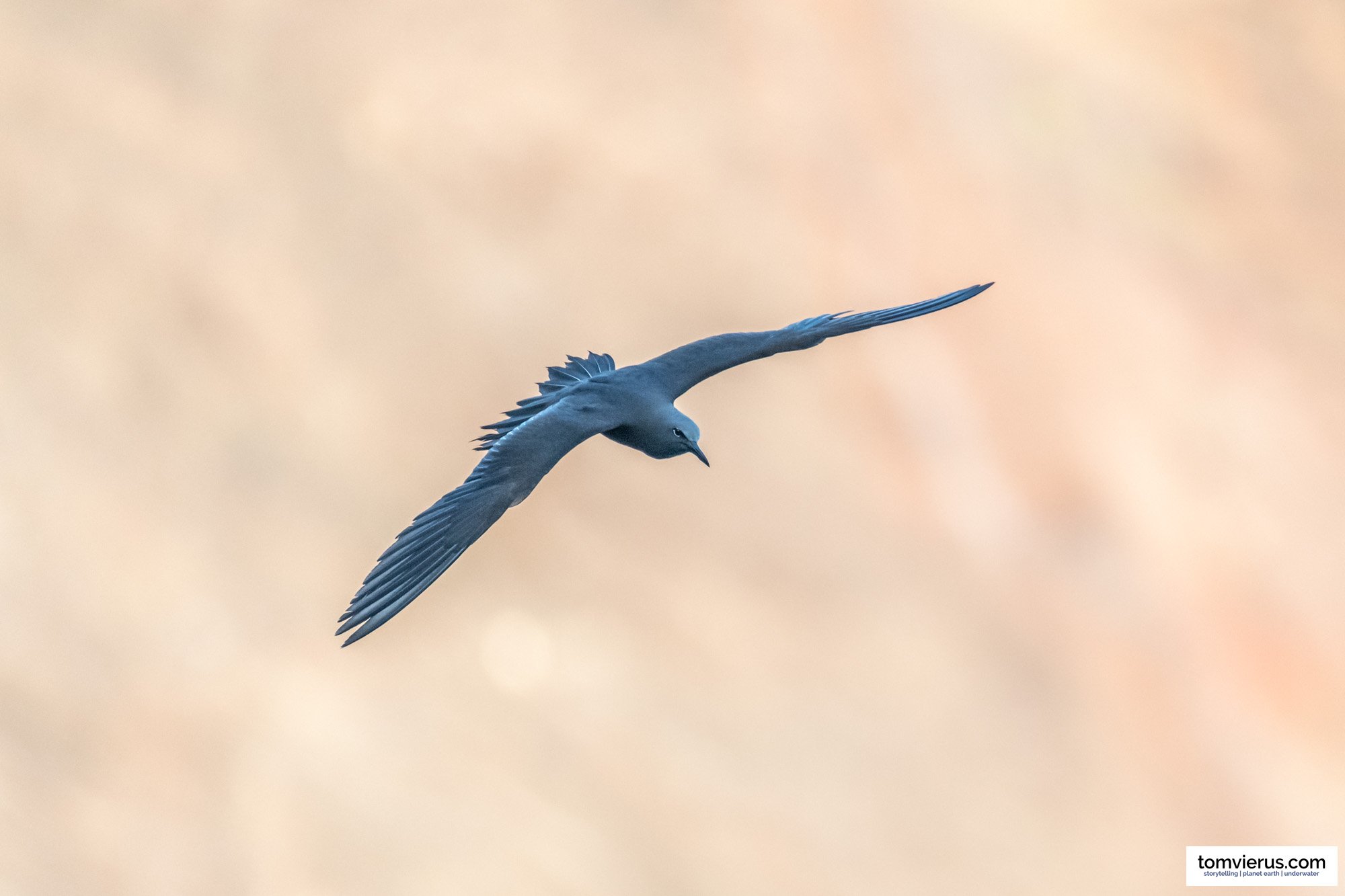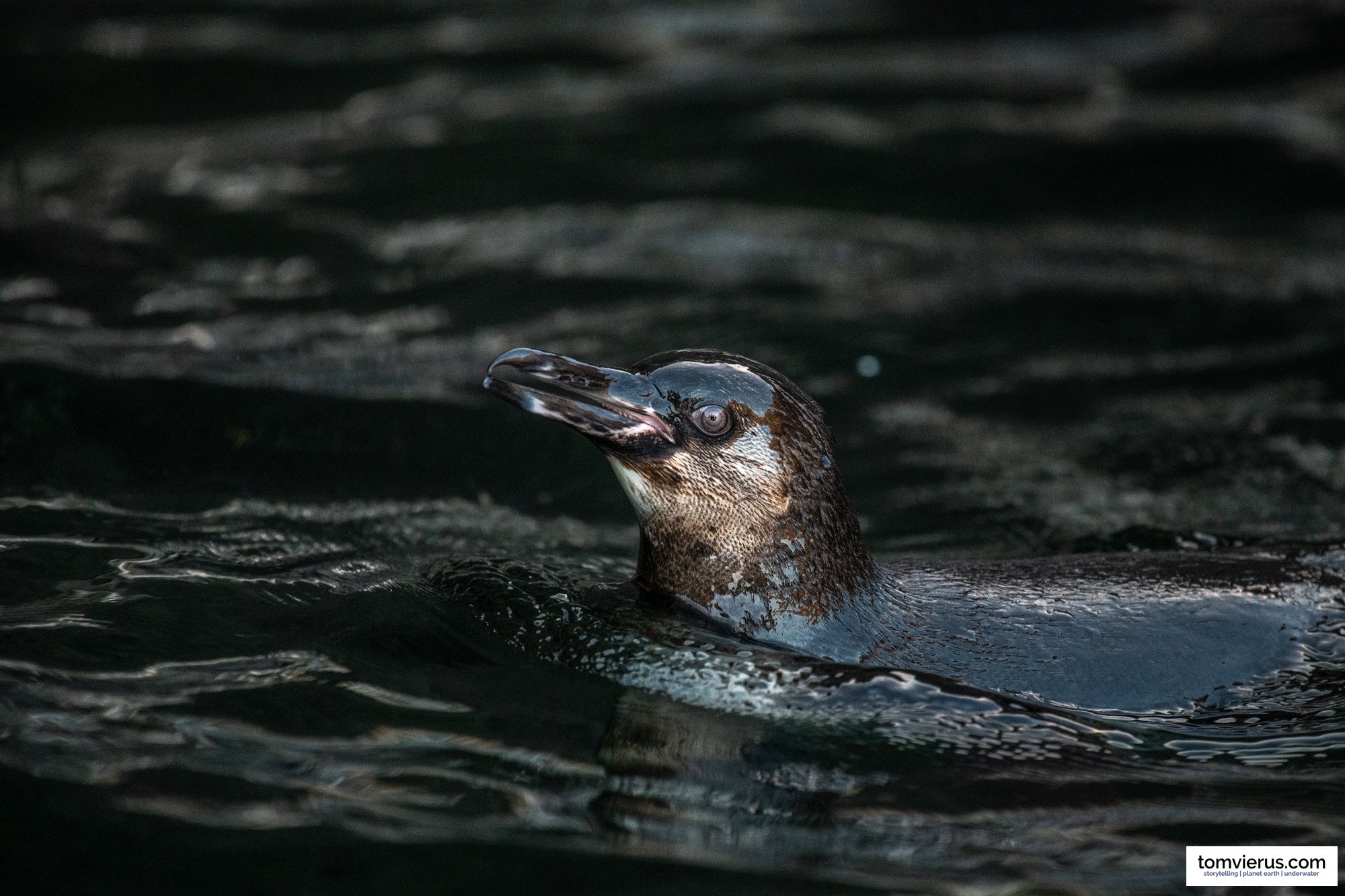Galápagos Diving from a Photography Perspective | Punta Vicente Roca | Part 7
This series of posts is about an 11-day liveaboard trip throughout the Galápagos Islands aboard the Deep Blue with the Master Liveaboard Fleet. Having shot several thousand images, I thought to share a few more here than on my other social channels, but be sure to check out my Instagram, TikTok, Youtube and Twitter for more. This part is about diving at Punta Vicente Roca at the northwestern tip of Isabela Island. Have a look at the other posts in this series.
After our amazing afternoon dive with the bizarre Red-lipped batfishes, the vessel moved a little north towards Punta Vicente Roca at the north-western tip of Isabela Island. This location would hopefully bring us the famous Mola Molas as well as some Galapagos bullhead sharks. As usual, the next morning started early for me and the only ones awake were usually one of the staff and Ken, a fellow diver from Texas. We would be aiming for three dives here, plus a panga tour of the surrounding cliffs in the afternoon - this area boasted of turtles, seabirds like brown noddies, as well as the highly anticipated Galapagos penguins.
The sun rises over Isabela Island, the largest island in the Galapagos Archipelago.
The Deep Blue anchored in the waters near the northwestern tip of Isabela Island while several brown noddies fly by.
A Smoothtail Devil Ray (Mobula munkiana) leaps out of the water at the northwestern tip of Isabela Island, the largest island in the Galapagos Archipelago. Smoothtail devil rays are classified as ‘Vulnerable’ by IUCN.
First dive at Punta Vicente Roca
Several Brown Noddies (Anous stolidus) rest on the steep cliffs of northern Isabela island just before we descend into the freezing waters.
A Diamond Stingray (Hypanus dipterurus) encountered in about 30m depth at the north-western tip of Isabela Island, Galapagos Archipelago.
The panga drive was as short as it could possibly be, with just around 50m. We entered the water right next to the steep cliffs while being observed by several dozen noddies who were resting on little overhangs on the rock. Geoff had already prepared us for extremely cold conditions (at least what I consider extremely cold), and he had also told us that we'd likely encounter a thermocline in about 5-10m. The first meters would often be murky and turbid, with 19 degrees Celsius a little warmer than the deeper waters where the temperature dropped to 14 degrees. We seemed lucky: the visibility was pretty darn good - not only in the first few meters, but it was fantastic even below!
In order to see the Mola Molas, we had to go deep, around 30-33m, and just hang there for a few minutes - as long as our NItrox mix would allow us without getting into deco. For this particular dive, I had again put on the whole range of available clothing to me: Neoprene socks (that Ken borrowed me - thanks again, Ken!), two pairs of thick tennis socks over them, plus my booties, then a Sharkskin, a rashguard, an additional (non-dive specific) Northface longarm sweatshirt, one 5mm wetsuit topped with a 3mm shorty, a buff and my hoodie. Sounds insane - and it was! But let me tell you - even all this didn't keep me from absolutely freezing!
No Sunfish but Galápagos Bullhead Sharks and colourful soft corals
Side portrait of my first ever Galápagos Bullhead Shark (Heterodontus quoyi) photographed swimming along the colourful soft corals.
Portrait of a Galápagos Bullhead Shark (Heterodontus quoyi).
As we were hovering at 32m, looking out in the blue and hoping for the sun-shaped fish to arrive, the cold started creeping in. Still ok, though, especially if I see cool stuff underwater, the being cold part can be (kind of) forgotten. Mind over body, I guess. Unfortunately, we didn't seem to be lucky, and as the second group descended and arrived next to us, we moved on, making our way slowly along the stunning, vibrant reefscape here.
There was an abundance of reef fish, and I ended up seeing and photographing about five different Bullhead Sharks. It was the first time I had ever had the pleasure of seeing them. And they're beautiful! What also struck my eye was the specific kind of volcanic rock all around us, creating near-geometrical shapes. Long, thin bar-like structures, all remnants of the past when the volcano that was sitting here once upon a time was still active, and formed the landscape as we observe it today.
Too cold to finish - early ascend for me
Volcanic rock formations in 30m depth.
A Panamic Cushion Star (Pentaceraster cumingi) among sea fans.
A Blotched Fantail Ray (Taeniurops meyeni) encountered at about 30m depth at the north-western tip of Isabela Island, Galapagos Archipelago.
After a good thirty minutes, the cold had entirely taken over, and some of my muscles literally started twitching. Although we had another 10-15 minutes ahead of us, I knew I had to get out. There were a few more of us, including my buddy, seemingly feeling the same way, and once we arrived at around 8m of depth, we signalled to each other to do the safety stop and head out of the water. On the panga, we hoped to return to the Deep Blue but were told we had to wait for the other divers. It seemed a little ridiculous as the vessel was only around 50m away, and we had probably at least another ten minutes to wait, plus we were all crazy cold. But it was what it was, and we had to wait.
Once the rest of our group ascended, they told us of the amazing shallows at the end of the dive, which we had missed! Around a dozen turtles playing around, rays and, as usual, an abundance of fish. They didn't want to get out of the water! Damn it, I thought to myself while at the same already mentally preparing for the next dive. I had to stay till the end and overcome the urge to leave the water. Spoiler - I managed after all :)
Finally - a Mola Mola!
A Mola Mola (also referred to as sunfish) encountered at about 30m depth, curiously checking me out for a little moment.
A Mola Mola (also referred to as sunfish) encountered in about 30m depth at the north-western tip of Isabela Island, the largest island in the Galapagos Archipelago, Ecuador.
The second dive started in the same way as the first. We descended and hovered at a ledge looking out in the blue. This time, I approached the situation a little differently, and instead of hovering and waiting, I turned around and swam around at the back of the group, taking photos to keep myself moving and, thus, hopefully, warmer. I was photographing a Blotched Fantail Ray when I heard the frantic movement of the dive guide's shaker. Ok - I had to be a Mola Mola. I turned around and propelled myself as fast as I could with my large housing towards the sound. The group was in a line facing the blue, and I could make out the M0la Mola shape in the distance.
As I didn't have enough time to swim towards the action, I decided to situate myself right at the furthest on the right side of the group. And how lucky that decision was! As the sunfish approached the divers checking them out, it turned to the right, swimming right towards me! I held my breath a little (while making sure not to move up and down at all) and minimised the distance between us as slowly and controlled as possible to avoid freighting this insane fish (despite me being crazily excited!). It came straight at me until I had to breathe up when I was about 3m from me.
It got a freight or at least decided that it was close enough and slowly turned and swam away. I managed to shoot the pictures below in the few seconds I had. Wow! What a cool experience, and I felt absolutely thrilled (and, of course, had COMPLETELY forgotten about any cold temperatures :))
Dead turtle - likely from illegal fishing
The carcass of a Green Sea Turtle (Chelonia mydas) found during a dive at the north-western tip of Isabela Island, the largest island in the Galapagos Archipelago. Only the upper part of the shell remained, which must have been cut with a knife based on the very clean edge. The dive and fishing crew suggested this would likely be an illegal act of fishing.
Beautiful and colourful underwater scenery at Punta Vicente Roca.
A Brown Sea Cucumber (Isostichopus fuscus).
A Chocolate Chip Sea Star (Nidorellia armata) among volcanic rocks at Punta Vicente Roca.
Warmed up from the great experience, we continued our dive, slowly ascending into shallower depths. After a while, we came across this dead turtle with its oesophagus and head still attached but cleanly cut in half - later, Geoff would tell us that this looked like an illegal fishing activity. The flesh was taken, and the carapace was dumped back into the ocean. What a sad end for such a magnificent and threatened animal.
Turtle party in 5m depth!
Several Green Sea Turtles (Chelonia mydas) swim in shallow water at the end of the second dive. Green Sea Turtles are classified as ‘Endangered’ by the International Union for Conservation of Nature (IUCN).
A Green Sea Turtle (Chelonia mydas).
As we finally got into the little bay that the rest of our group was so excited about, I could see why. There were about seven or eight turtles just hanging around there, some seemingly courting or even trying to mate, surrounded by lots of fish. We spent almost another ten minutes here enjoying this magnificent sight (especially after having just seen the dead one), and quite unbelievably, I ended up on the panga as the last one! Ha - what a difference the mind can make. It is always good to re-witness this and re-mind oneself of one's capabilities as long as the mind is set up right away (admirably, diving in cold waters might not be the best example, but it is still a representative one).
Panga drive in the afternoon - Galapagos Penguins and seabirds
A Brown Noddy (Anous stolidus) in-flight. Absolut magnificent birds.
A Brown Pelican (Pelecanus occidentalis) flies low above the ocean surface.
A splishot a Green Sea Turtle (Chelonia mydas) at Punta Vicente Roca.
Two Galápagos Penguins (Spheniscus mendiculus) rest on a rock on the northwestern tip of Isabela Island, the largest island in the Galapagos Archipelago. Galápagos Penguins are classified as ‘Endangered’ by the International Union for Conservation of Nature (IUCN).
A Galápagos Penguin (Spheniscus mendiculus) at the water surface.
A Galápagos Penguin (Spheniscus mendiculus) shares a rock with a few Fernandina Marine Iguanas (Amblyrhynchus cristatus) at the north-western tip of Isabela Island, the largest island in the Galapagos Archipelago. While the marine iguanas are considered “Vulnerable’ by the International Union for Conservation of Nature (IUCN), Galápagos Penguins are even considered ‘Endangered’ showing once again how important the Galapagos Islands are for the conservation of these species.
A Flightless Cormorant (Nannopterum harrisi) cleans its fathers on a rocky beach near the north-western tip of Isabela Island, Galapagos Archipelago.
A Galápagos Penguin (Spheniscus mendiculus) just chilling away..
We ended this already spectacular day with a panga ride around the Bay area. We got to see lots of brown noddies foraging in the later afternoon sun, some marine iguanas resting on the rocky shore, several flightless cormorants drying their feathers, and we also got to see a group of Galapagos penguins!
The beautiful animals hold several records: they are the smallest penguins in South America, the only penguins to live near the equator, and the most-northerly breeding penguins. There were only about four or five alternatives between resting on the rocks and hunting in the shallows, occasionally coming up before diving down again.
There was literally one meter next to our boat, and what magnificent. I will surely never forget this trip to the Galapagos and the sheer number of stunning animals there. After experiencing all the beauty we had in the day here at Punta Vicente Roca, this was just the cherry on top. With a few Club beers and a big smile on my face, I declared the day concluded later back aboard the Deep Blue and was already thinking about the next day. Giant Oceanic Manta Rays are waiting.. Stay tuned!


























